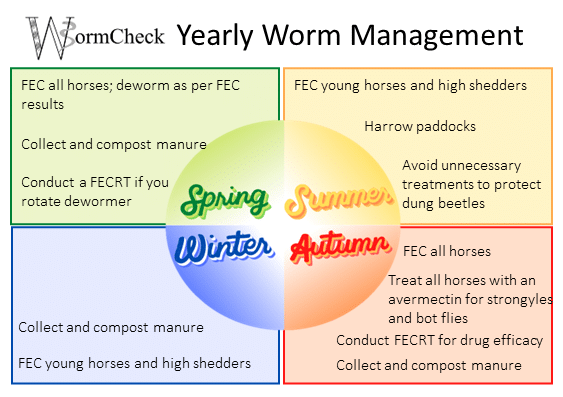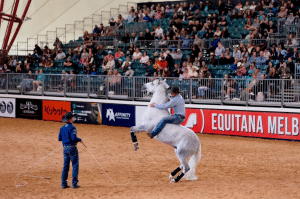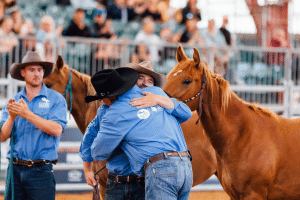Presented by Dr Jacqui Panozzo:
General Parasite Management in Horses
Healthy adult horses can be FEC-ed twice a year and dewormed just once or twice a year depending on FEC results. Every horse has an individual relationship with their worm burden and so for an accurate idea of egg shedding/worm burdens every horse should be checked. Token samples from groups of horses are not at all representative (e.g. three horses sharing a paddock can all have completely different FEC results).
A yearly schedule for FECs and deworming can follow:
Mid/late Autumn:
• All horses checked via FEC for strongyles and tapeworm.
• All horses dewormed for strongyles, bot-fly larvae. Ivermectin or abamectin drenches are appropriate for routine treatments. If tapeworm is present, a drench containing praziquantel will also be required. (Note: pinworms will also be treated by these drenches.)
• Young horses (under 4yo) should be treated as per FEC results in case of Ascarid infection.
• Two weeks after deworming, a subset of horses should be re-checked via FEC to test for drug resistance.
Winter:
• Most horses will not require any FECs or deworming
• Get FECs conducted on young horses (under 4yo), horses in poor condition or horses that were above 500EPG on the autumn FEC
• Deworm as per FEC results (>500EPG). Any dewormer is suitable.
Spring:
• Get FECs conducted on ALL HORSES
• Deworm as per FEC results (>500EPG). Any dewormer is suitable.
• If you used a different dewormer in spring to autumn, conduct follow up FECs on a subset of horses to test for drug resistance for the active drug used in Spring.
Summer:
• Early summer, get FECs done on young horses (under 4yo), horses in poor condition or horses that were above 500EPG on the spring FEC
• Deworm only as required.
• Avoid deworming in the middle of summer to protect dung beetles and to avoid inducing larval cyathostominosis.
Paddock Management:
Worm larvae are extremely resilient to environmental conditions and will survive on pasture for up to 6 months during cooler, damp periods. “Resting” paddocks will not improve larval contamination levels unless rested for over 6 months. Methods to reduce larval pasture contamination include:
Collecting manure off pasture:
• Eggs will hatch into larvae within 4 days in warmer temperatures. It is best if paddock cleaning is done at least twice a week. Hand collecting, vacuuming and paddock sweeping are all equally effective.
• Manure can be composted for a few weeks before respreading onto pasture. The heat and lack of oxygen in compost heaps will kill off worm larvae.
• Deworming high shedding horses (horses with EPG above 500EPG)
Cross-grazing:
• If paddocks are grazed between rest periods with other livestock (sheep/cows), these livestock will remove some of the larvae off the pasture.
Avoid harrowing in damp/cool periods:
• Harrowing will spread larvae across the paddocks. If harrowing is used as part of pasture management, it is best to rest and cross graze before horses are put back onto the pasture
Preventing Drug resistance:
The key to preventing drug resistance is to reduce the number of treatments given. The best way to start this is by only deworming horses with higher FEC results. When using FECs to guide deworming practices, it is usually found that only up to half of horses require treatment.
Checking drug efficacy by having follow up FECs conducted after deworming is also key to determine if resistance is developing. Routine rotation of wormers will be unlikely to help prevent drug resistance if follow up FECs are not conducted to check efficacy.
New horses should be quarantined upon arrival, checked via FEC before deworming and again two weeks after to ensure they have not brought drug resistance worms onto the property. Worming on arrival without a FEC gives nothing for the follow up FEC to be compared to.
Moxidectin (Equest) now has resistance developing to it. It is the most effective of wormers; therefore, avoid using it for routine treatments and instead only in specific cases (e.g. clinical illness, young horses at risk of cyathostominosis etc).
https://www.wormcheckaustralia.com/
https://www.facebook.com/wormcheck




